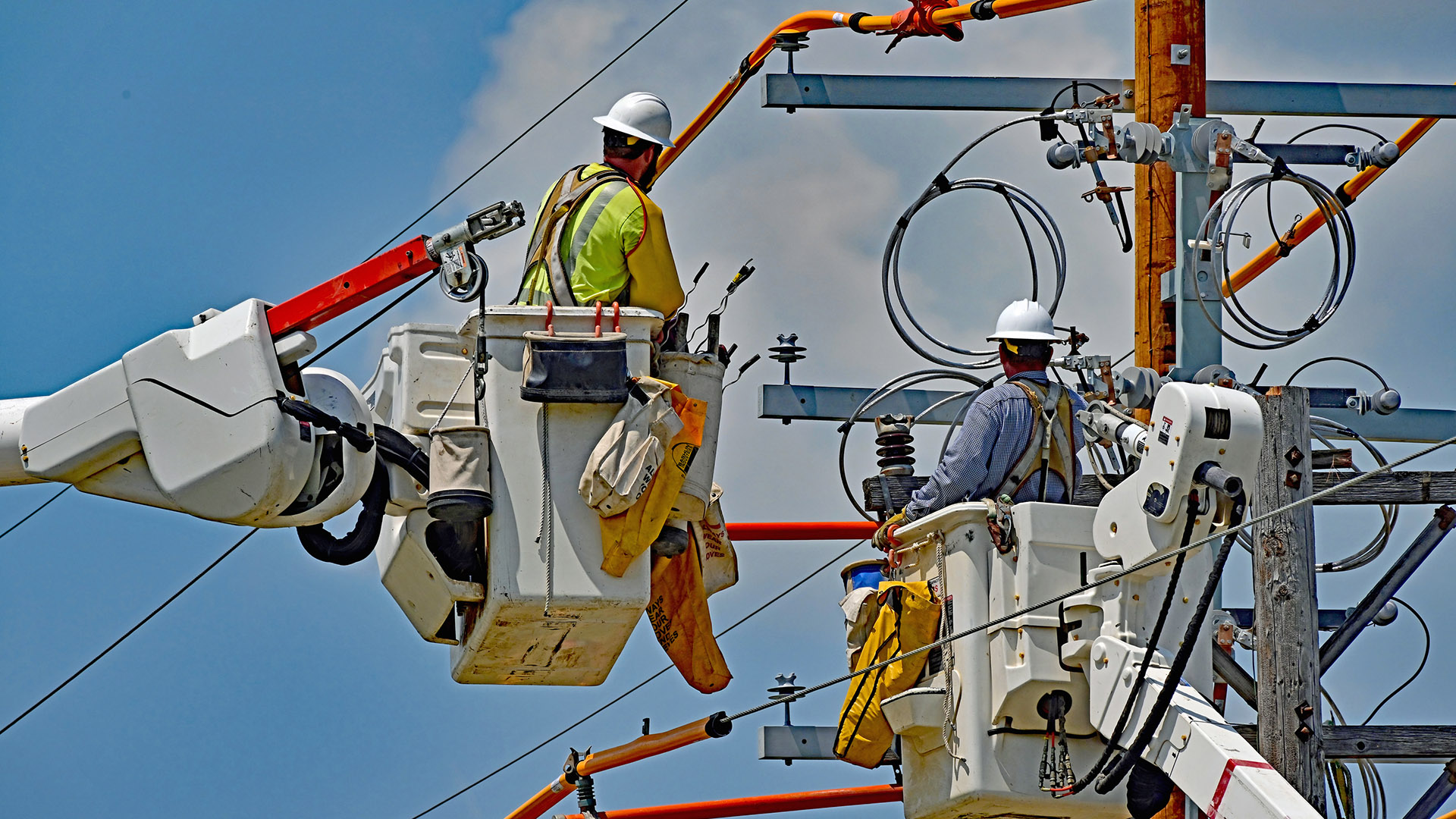As part of our chronicling of everyday work in extraordinary times, we’re highlighting workers that risk their safety on the frontlines of the coronavirus.
We know that our first responders and healthcare workers risk their health and safety to deliver the highest quality of lifesaving care every single day. We hear daily stories of their hard work to make sure our friends and families are tested, taken care of during their stay and treated so they can hopefully make it home safely.
One of the most essential needs for hospitals and emergency vehicles to run as efficiently as they can is energy. Healthcare facilities need to be powered 24 hours a day as they take in new patients, care for those who need long-term supervision, perform surgeries and keep their Intensive Care Units up and running. This is especially important for medical devices, like the ventilators being used in the fight against COVID-19.
It is vital that the equipment used in hospitals is operational at all times in these life-threatening situations. Hospital employees work diligently not to further infect patients or risk getting infected themselves. How do they do it? Vital personal protective equipment like gloves, masks, gowns and shields, as well as sanitizers and disinfectants that help keep surfaces infection-free. These essentials require medical-grade plastics, rubbers and sanitation formulas which are heavily dependent on specialized petrochemicals derived from energy production and refining.
Wait, oil and gas make these things? Most of us don’t know that’s one of the tens of thousands of ways that the byproducts of oil and gas exist in our everyday lives. Without oil and gas, healthcare professionals could not provide the standards of care required to fight infections and outbreaks like coronavirus.
While healthcare workers operate in the spotlight, there are others bearing similar risks – and ones they did not sign up for when they chose their professions. America’s utility workers are also on the front lines in the fight against the novel coronavirus, working around the clock to make sure our lights are on. That’s never been more important than now when we’re tasked with staying at home to pursue the mission of “flattening the curve.”
Doctors, nurses, paramedics and others in the healthcare sector are trained to work around infectious diseases. Grid workers and other utility employees have different safety training, but they can’t stay home. They’re needed around the clock to ensure things are running smoothly, at their facilities and out in the field.
Their work is usually unsung unless the power’s out at your house and someone arrives to fix it. Right now, utility workers are making sure that our hospitals and healthcare workers don’t have to worry about a potential power outage as they manage already overloaded emergency rooms and intensive care units, and ensuring that all Americans who have to stay and work from home can do so safely, comfortably, and productively.
Utility companies have leaned in during this fight to help their communities by deferring bills, partnering with local nonprofits, and reassuring customers that load shifts – the movement of demand from offices to homes that’s happening across the country as we work from home – will be properly managed.
While they are not working with patients, they are still exposing themselves to everyday risks associated with the coronavirus. In fact, Con Edison recently reported that. While not all of those are field workers, the fact remains that utility workers who are out in the field are constantly exposed to the public while keeping this country – and our hospitals – running.
That’s why some utilities and other energy providers have asked that their mission-critical employees have improved access to testing, so they can keep the personnel required to run our energy assets isolated from those who are infected. That way, this essential workforce with a highly specific set of skills isn’t knocked out by a handful of infections that spread fast and undetected.
